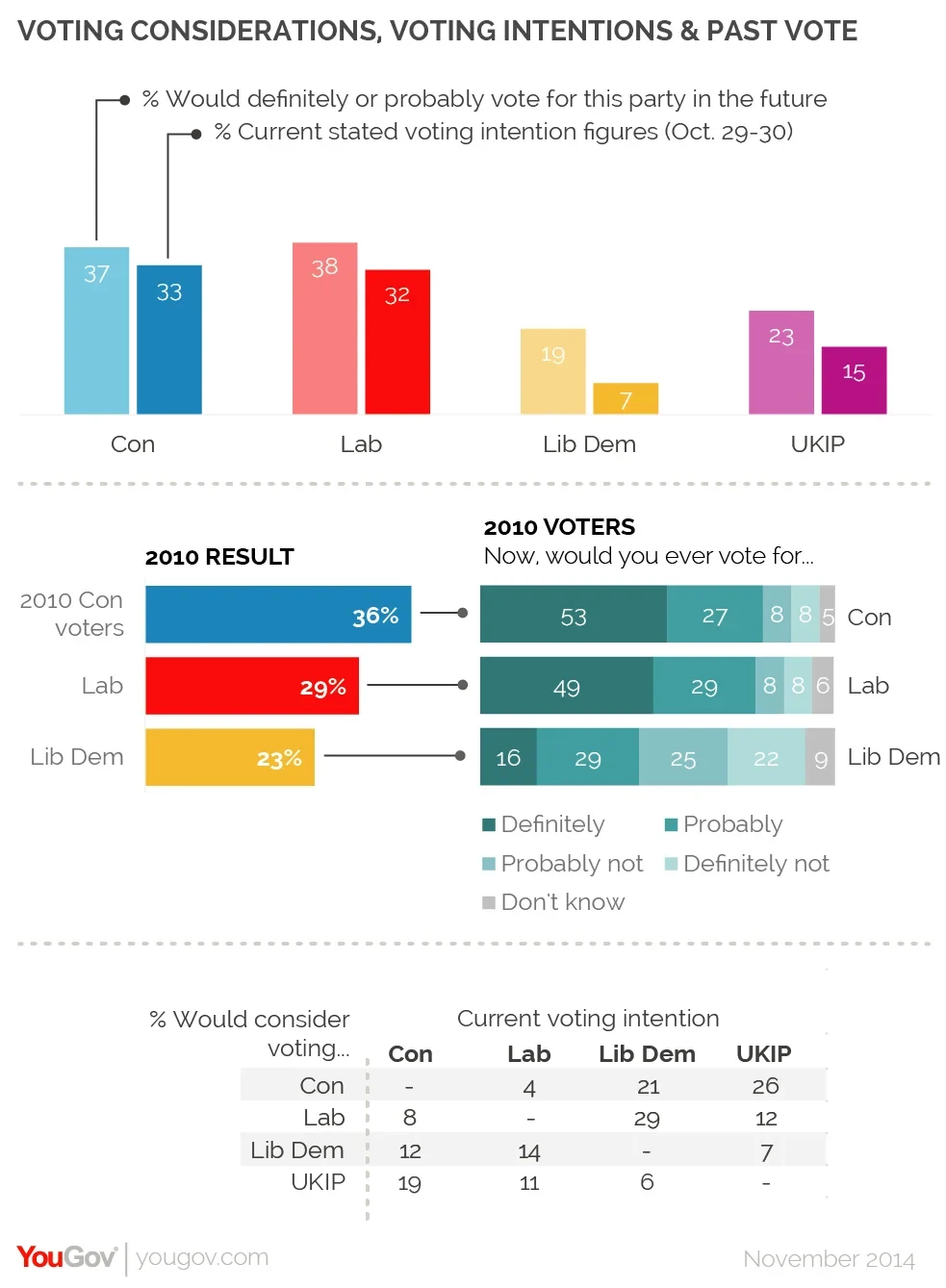Looking at wider voting considerations – rather than stated voting intentions – suggests the Liberal Democrats have the potential to exceed expectations
What kind of divergence from current voting intention numbers can we expect by the time we get to May 2015? There is something strange about the conventional polling question that all pollsters ask, along the lines of, "If a general election were held tomorrow, which party would you vote for?" In the days before fixed-term parliaments, there was some logic behind this, as no date could be mentioned, but now of course we know with near-certainty it will be held on 7th May next year.
So the voting intention question does not ask you to predict what you will do, it asks you your mood right now, and disconnects the respondent from the real choice they will face. Add to that the tactical voting factor: asked today about who you would vote for, you will say the party you liked best; but in a marginal seat where your party cannot win, you may well vote for your second preference.
In order to see a little beyond the conventional voting question, we asked follow-up questions about each of the main contenders, for example: 'Would you ever vote for the Conservatives?' With the options 'Definitely', 'Probably', 'Probably not', 'Definitely not'. Combining the first two, we get the 'consideration set', the portion of the electorate that would seriously consider voting for the party. Because also know how many of our sample actually voted at the last election, our charts become even more useful – we can compare current 'consideration' with current stated 'voting intention' and actual previous vote.

There are so many possibilities, you can make up your own mind what it all means. For me, the most striking data is that the 'consideration set' for the Lib Dems is disproportionately high compared to the general relationship between voting intention and consideration. What this suggests to me is that the Lib Dems have the most opportunity for improvement. People who in the past would have voted for them are still angry at them, and want to withhold their endorsement. But in an election where there's a real likelihood they will end up in government, and where they will credibly claim they will have a 'softening' influence on whichever party wins, it strikes me as unlikely they will face anything near the collapse currently predicted by the polls.
PA images









